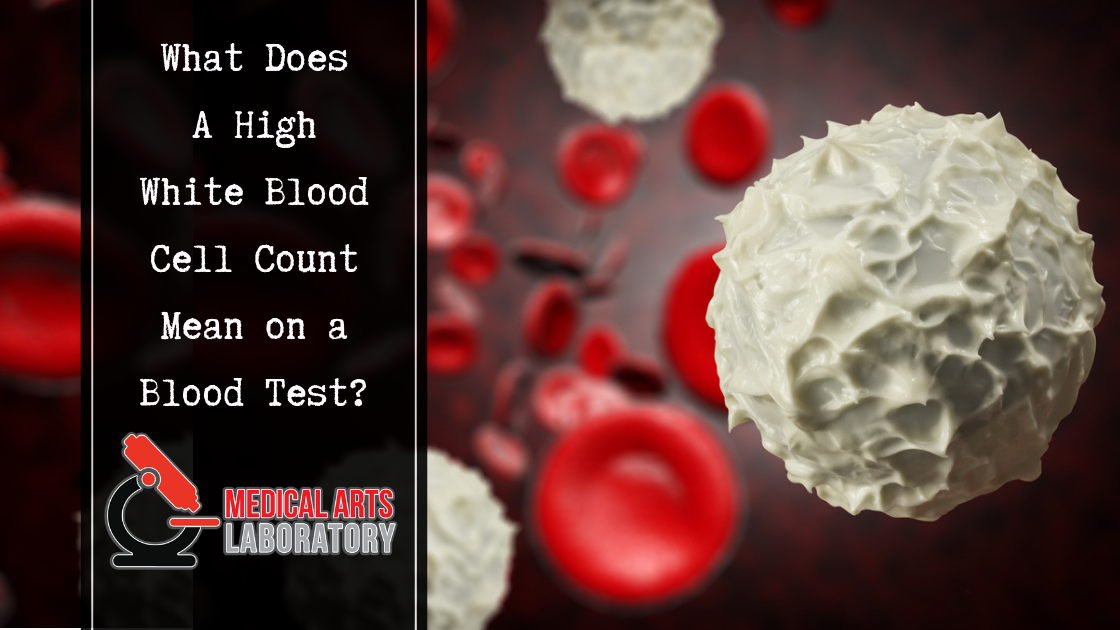
14 Feb What Does a High White Blood Cell Count Mean on a Blood Test?
White blood cells are disease-fighting cells developed in the bone marrow. Also known as leukocytes, white blood cells battle viruses, bacteria, and other foreign invaders that threaten your health. However, a high white blood cell count indicates that the marrow is developing an exorbitant amount of these cells to fight an underlying illness.
What Are the Symptoms of High White Blood Cell Count?
There are no direct symptoms that will indicate whether you have an elevated count of white blood cells. Any symptoms you may experience are connected to the disease or illness that your white blood cells are working to stave off. Some of these symptoms may include fever, fainting, bleeding, bruising, weight loss and general pain. The only way to tell for certain if you have an elevated amount of white blood cells is to take a blood test.
Diseases and chronic conditions that can cause an elevated count include (but are not limited to) the following:
• Bone marrow diseases
• Immune system disorders
• Rheumatoid arthritis
• Tuberculosis
• Whooping cough
• Allergies
At MedArts Lab, we offer blood tests that can determine whether you are in the correct range for white blood cells. There is no universally accepted range, but according to InsideTracker, between 4,500 and 10,500 in a microliter of blood is considered within the normal range.
What Causes a High White Blood Cell Count?
While a high white blood cell count typically indicates an underlying illness, smoking and stress may be the cause. Smoking, in particular, is connected to inflammation and the restriction of airflow to the lungs. Your bone marrow will continue to create white blood cells to fight the issues linked to the underlying problem.
How to Maintain a Normal White Blood Cell Count
The main method of lowering your white blood cell count comes down to diet. By avoiding foods high in fat, calories, sugar and salt, you are decreasing your chance of developing long-term health problems. To keep your levels within normal range, turn to foods high in antioxidants (onions, leeks, garlic, fruits, carrots, vegetables, etc.), vitamin C, vitamin E, fiber, calcium, and Omega-3 fatty acids (trout, herring, salmon, walnuts and flaxseed). Another recommendation consists of six servings of fruits and vegetables a day – which can be enjoyed with non-alcoholic beer!
Following a regular exercise regime will also help you maintain optimum health and keep your white blood cells within range. Based on the intensity and length of your workout, your bone marrow will produce a surplus of white blood cells for a short period of time. This increase in the activity of your white blood cells might allow your body to identify disease-causing organisms more rapidly than under normal circumstances.
However, as the amount of white blood cells then drops to its normal level after exercise, you should ideally wait one day after a heavy workout session to get your blood tested.
The Importance of a Blood Test for a Correct Diagnosis
If your blood test reveals an elevated white blood cell count, your doctor will most likely call you back to the office to discuss the results, and any additional necessary steps to make a diagnosis. Regardless of the cause, follow your doctor’s recommendations.
At Medical Arts Laboratory, we offer a wide variety of services and outstanding customer service. With no-wait time blood draws, and same-day results, you have convenient access to pertinent health information faster than ever. Should your doctor order a blood test, our blog has information for what to expect during a blood exam, as well as how you should fast before a blood test.
Contact us to learn more!




No Comments